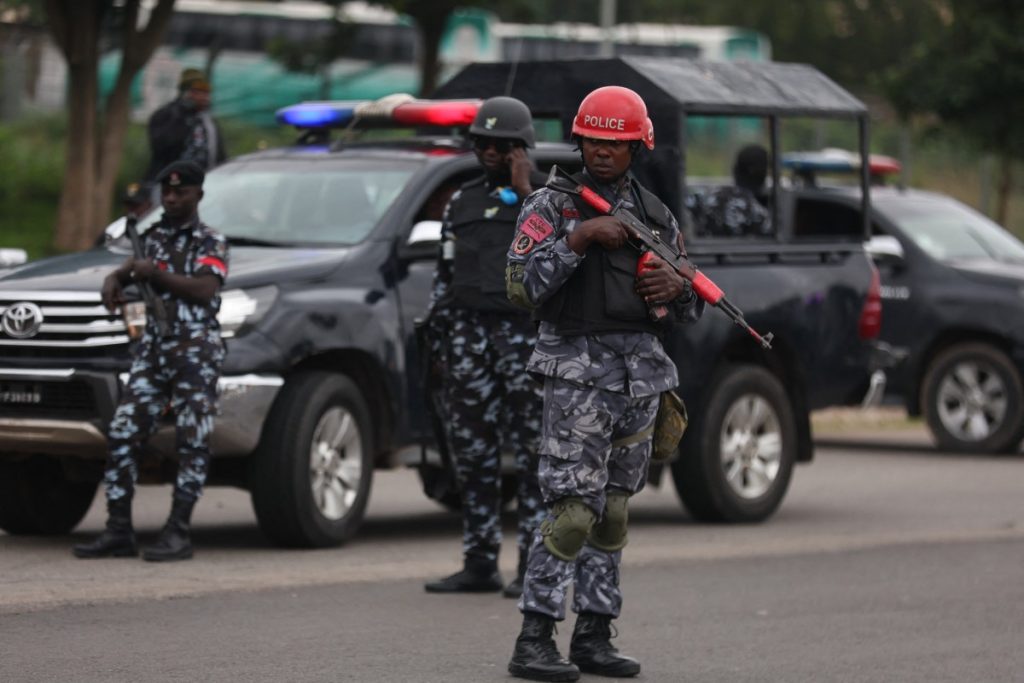Nigerian security forces fired warning shots and tear gas on Thursday to disperse protesters in Kano and Abuja, as thousands rallied nationwide against rising living costs.
Africa’s most populous nation faces soaring inflation and a sharply devalued naira following President Bola Ahmed Tinubu’s removal of a costly fuel subsidy and currency liberalization over a year ago aimed at reviving the economy.
The protest movement, tagged #EndbadGovernanceinNigeria, gained traction through online campaigns. However, officials cautioned against replicating the recent violent demonstrations in Kenya that led to the government abandoning new taxes.
With food inflation at 40% and fuel prices tripling compared to last year, many Nigerians are struggling financially but are also concerned about protest-related violence. In Kano, protesters burned tires outside the state governor’s office, prompting a police response with tear gas.
“We are hungry — even the police and the army are hungry,” said Jite Omoze, a 38-year-old factory worker. “I have two children and a wife, but I can’t feed them anymore,” urging the government to lower fuel prices.
Protesters later vandalized a Nigeria Communications Commission digital center near the governor’s office, and police fired shots to disperse looters, leading to reports of looting and arson in the city. Thirteen arrests were made, and Governor Abba Kabir Yusuf announced a 24-hour curfew in Kano, with similar curfews imposed in Yobe and Borno states.
In Abuja, security forces blocked roads to Eagle Square, one of the protest sites, deploying tear gas and barbed wire to prevent several hundred protesters from reaching the area. Tear gas was also used to disperse crowds in Mararaba, on the outskirts of the capital.
Approximately 1,000 people marched peacefully in Lagos, chanting “Tinubu Ole” (“Tinubu is a thief” in Yoruba). Local media reported that hundreds protested in Maiduguri and other northeastern states.
“Hunger has brought me out to protest,” stated 24-year-old Asamau Peace Adams outside the National Stadium in Abuja before tear gas was deployed. “It’s all down to bad governance.”
Prior to the protests, government officials encouraged activist youth to refrain from demonstrations, asking for time for Tinubu’s reforms to take effect, but protest leaders, comprising a coalition of civil society groups, vowed to continue marching despite legal challenges limiting protests to public parks and stadiums.
By Thursday afternoon, most protests had dwindled to small groups, but activist Damilare Adenola asserted, “It’s not over. If the crowd disperses today, we are coming tomorrow.”
In response to economic distress, the government outlined its aid efforts, including raising minimum salaries and providing food aid to the needy. “The government of President Tinubu recognizes the right to peaceful protest, but we must remain circumspect and vigilant,” stated Secretary to the Federation, George Akume.
The last major protest in Nigeria occurred in 2020, when young activists protested SARS anti-robbery squad brutality. That rally ended in violence, with rights groups alleging that the military opened fire on peaceful protesters, resulting in at least ten deaths, according to Amnesty International.
These protests in Nigeria follow a wave of unrest in Kenya, where President William Ruto was compelled to rescind new taxes and reshuffle his cabinet amid ongoing anti-government protests. In Uganda, officials recently arrested dozens participating in banned anti-corruption protests spurred by the Kenyan demonstrations.

